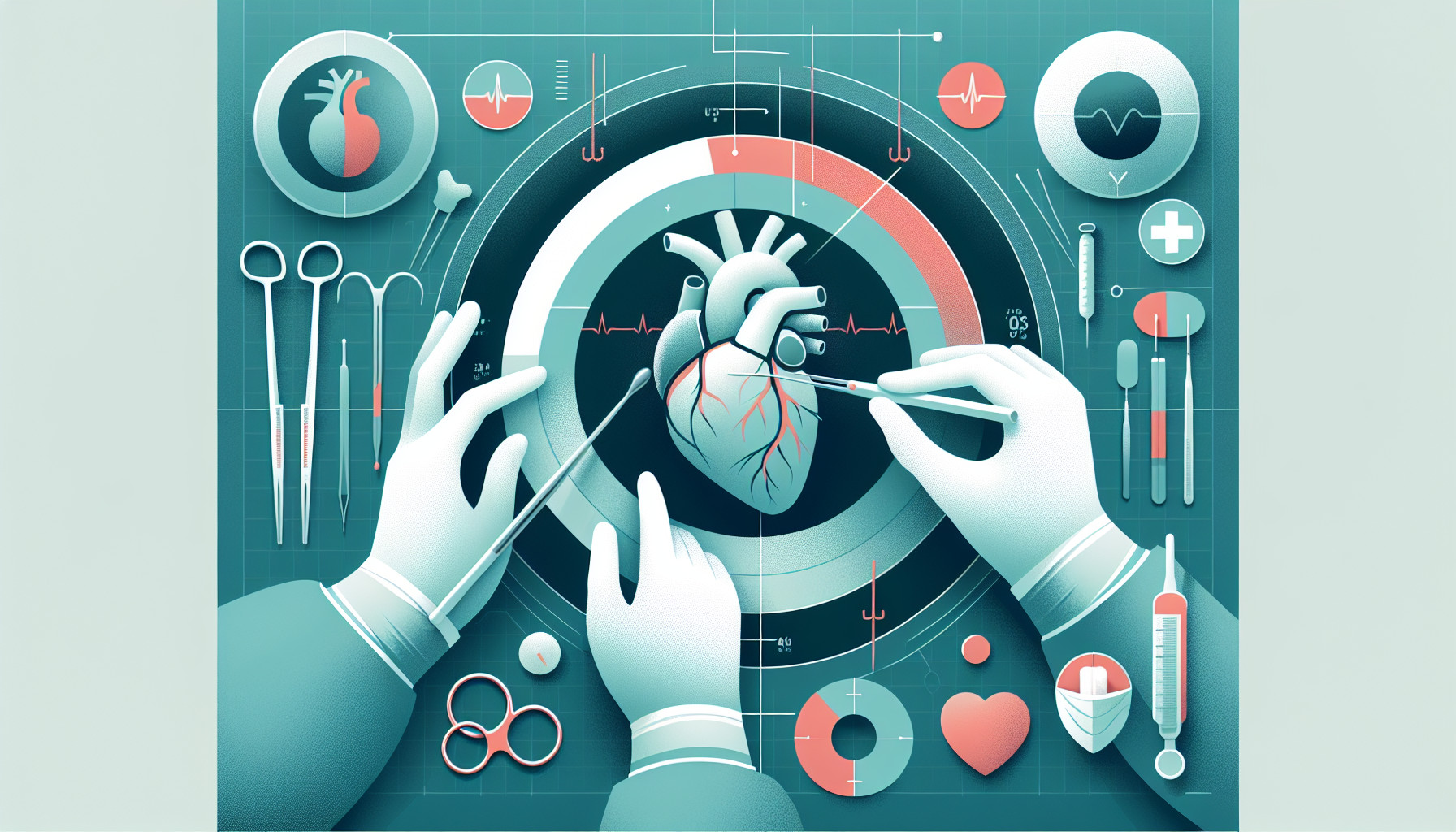Our Summary
This research paper investigates the effects of the distance between an electrode and heart tissue during a procedure called pulsed field ablation (PFA). This is a new method used to treat heart rhythm problems. The experiment was done on pig hearts using a four-electrode prototype catheter and a tool to control the distance of the electrode from the heart tissue. The team found that the closer the electrode was to the heart tissue, the deeper and wider the effect of the PFA. This means that for more effective treatment, the electrodes should ideally be in direct contact with the tissue. This research helps understand how to maximize the effectiveness of PFA in treating heart rhythm problems.
FAQs
- What is pulsed field ablation (PFA) and what is it used for?
- How does the distance between the electrode and heart tissue affect the effectiveness of PFA?
- What tools were used in this research to control the distance of the electrode from the heart tissue?
Doctor’s Tip
A doctor might tell a patient undergoing cardiac ablation to follow all pre-procedure instructions carefully, including fasting before the procedure and stopping any medications as instructed. It is also important to inform the doctor of any allergies or medical conditions before the procedure. After the procedure, the doctor may advise the patient to rest and avoid strenuous activities for a period of time to allow the heart to heal properly. Additionally, the doctor may recommend regular follow-up appointments to monitor the effectiveness of the ablation and ensure the patient’s heart is functioning properly.
Suitable For
Patients who are typically recommended for cardiac ablation are those who have not responded well to medication or other treatments for their heart rhythm problems. This includes patients with conditions such as atrial fibrillation, ventricular tachycardia, and supraventricular tachycardia. Additionally, patients who experience symptoms such as dizziness, fainting, chest pain, or shortness of breath due to their heart rhythm problems may also be recommended for cardiac ablation. It is important for patients to consult with their healthcare provider to determine if cardiac ablation is the right treatment option for their specific condition.
Timeline
- Referral: The patient is referred to a cardiologist for evaluation of their heart rhythm problems.
- Diagnosis: The cardiologist performs tests such as an electrocardiogram (ECG) and possibly a cardiac MRI to diagnose the specific heart rhythm issue.
- Treatment options: The cardiologist discusses treatment options with the patient, including medication, lifestyle changes, or cardiac ablation.
- Preparation for ablation: If the patient decides to proceed with cardiac ablation, they will undergo pre-procedure tests and evaluations to ensure they are a suitable candidate for the procedure.
- Cardiac ablation procedure: During the procedure, the cardiologist inserts a catheter with electrodes into the heart to deliver energy to the targeted areas causing the abnormal heart rhythm.
- Recovery: After the procedure, the patient is monitored in the hospital for a period of time to ensure there are no complications.
- Follow-up: The patient will have regular follow-up appointments with their cardiologist to monitor their heart rhythm and adjust medications as needed.
- Long-term outcomes: The patient may experience improved symptoms and quality of life following cardiac ablation, with a reduced risk of complications associated with their heart rhythm issue.
What to Ask Your Doctor
Some questions a patient should ask their doctor about cardiac ablation include:
- What is cardiac ablation and why is it recommended for my condition?
- What are the potential risks and benefits of cardiac ablation?
- How experienced are you in performing cardiac ablation procedures?
- Will I need any special preparation before the procedure?
- What type of anesthesia will be used during the procedure?
- How long will the procedure take and how long will I need to stay in the hospital?
- What is the expected recovery time after the procedure?
- Are there any potential complications or side effects I should be aware of?
- How effective is cardiac ablation in treating my specific heart condition?
- Are there any alternative treatment options available to me?
Reference
Authors: Howard B, Verma A, Tzou WS, Mattison L, Kos B, Miklavčič D, Onal B, Stewart MT, Sigg DC. Journal: Circ Arrhythm Electrophysiol. 2022 Oct;15(10):e011110. doi: 10.1161/CIRCEP.122.011110. Epub 2022 Sep 27. PMID: 36166690
